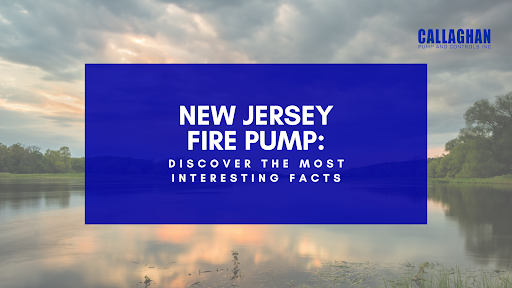
April 12th, 2024
Picture a site suddenly shattered by the wail of fire sirens echoing through the corridors of towering structures. Flames are dancing with ferocity, threatening to engulf everything in their path. In these moments of fire accidents, the true significance of the New Jersey fire pump is revealed.
Since firefighters alone can’t quell the fiery tempest before them, they need a steady stream of water to douse the flames and safeguard lives. Fire pumps are designed to prevent the fire from spreading. Their importance can’t be overstated, for it is the device upon which the safety of countless lives depends.
So, the next time you walk the bustling streets of New Jersey, take a moment to remember the silent hero beneath your feet. The NJ fire pump, with its quiet strength and unwavering resolve, is a testament to the power of human ingenuity in the face of adversity. And in its shadow, lives are saved, futures are protected, and hope reigns eternal.
Many people may not realize it, but NJ fire pumps play an important role in our daily lives. They are vital for fire protection systems, ensuring reliable water pressure for firefighting operations.
These pumps have a long history associated with their existence, which we take for granted today. With that in mind, let’s look at some interesting facts about New Jersey fire pumps that most people might not know.
Fire pumps exist in industrial settings, homes, and municipalities. From multi-story complexes to hospitals and schools, fire pumps are present everywhere. Certain manufacturing industries like chemical have more pumps than they do employees.
Fire pumps are a part of a fire protection system and are powered by electricity, diesel, or steam, depending on the scale of the project. Their intake is usually connected to the public underground water supply or some static water source. The pump provides adequate water pressure to the sprinkler system at a higher elevation.
There are two main types of fire pumps: centrifugal pumps and positive displacement pumps. While centrifugal pumps are more commonly used for their efficiency and reliability, positive displacement pumps are also common in some applications.
Most New Jersey fire pumps require regular testing and maintenance to ensure they are in proper working condition. This may include weekly, monthly, or annual inspections and performance testing. Performance testing of fire pumps involves evaluating their ability to meet the required flow and pressure demands under various conditions. This testing is crucial to verify that the pump will perform as expected during a fire emergency.
Fire pumps are often installed in critical infrastructure facilities, such as hospitals and airports, to protect life and property in a fire emergency. NFPA standards recommend having a separate room to install these pumps. The standards suggest providing enough structural protection to avoid potential failure or breakdown.
In addition to main fire pumps, many systems include jockey pumps, smaller pump devices that help the main pump maintain water pressure in the fire protection system. This is done by compensating for small leaks or pressure variations. The jockey pump principle ensures that the fire sprinkler system is always ready for use.
The lifespan of a fire pump can vary from model to model, depending on the frequency of maintenance and adherence to recommended service schedules. When maintained and tested regularly, a fire pump’s lifespan can extend to approximately 25 to 30 years. However, a few factors can minimize its lifecycle, including corrosion, vibrations, high temperatures, low-quality materials used, and cheap construction quality.
When the water pressure in the fire sprinkler system drops below a certain level or threshold, the New Jersey fire pump will start automatically. The fire sprinklers exposed to heat above their design temperature will open and release water. Alternately, they will stop automatically once the fire is eliminated.
All of the facts above underscore the importance of NJ fire pumps in safeguarding buildings and occupants against the destructive force of fires. If you are eager to learn more, contact the fire pump experts at Callaghan Pump today!
john@callaghanpump.com,
eileen@callaghanpump.com,
dan@callaghanpump.com,
sales@callaghanpump.com,
service@callaghanpump.com












